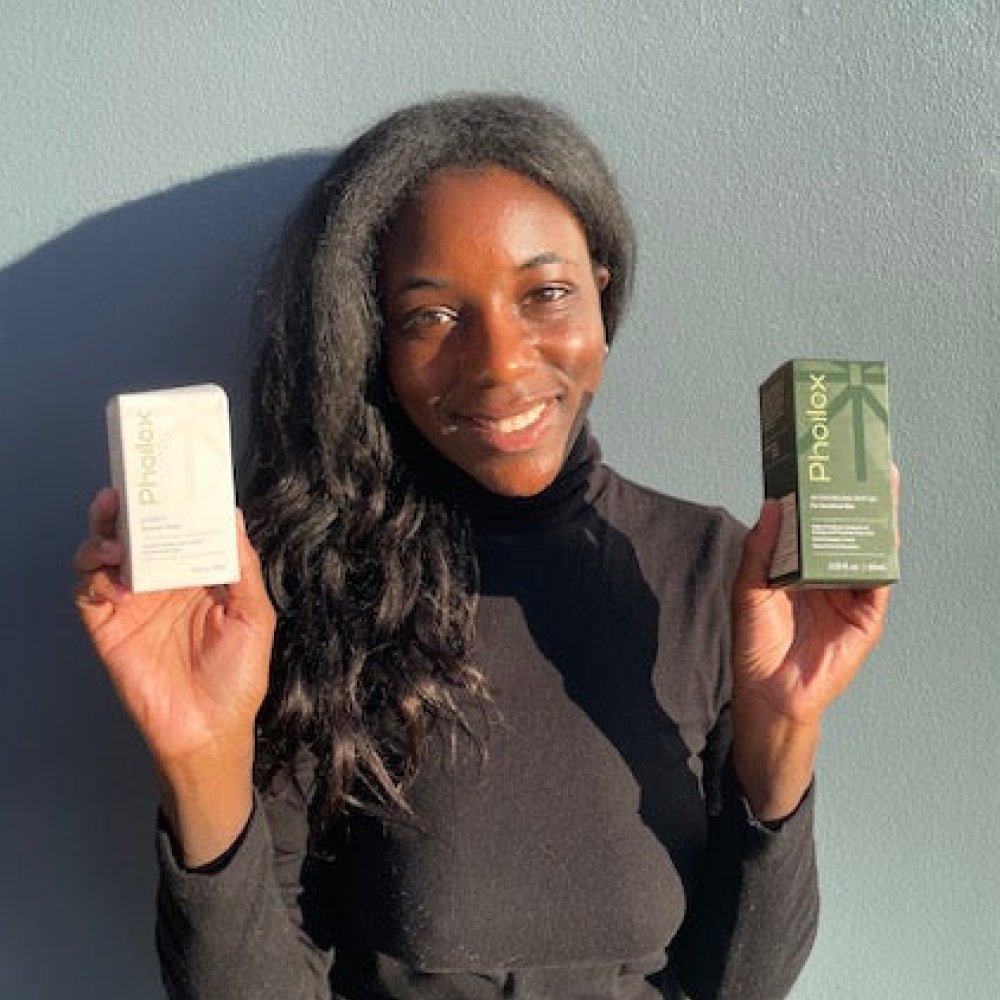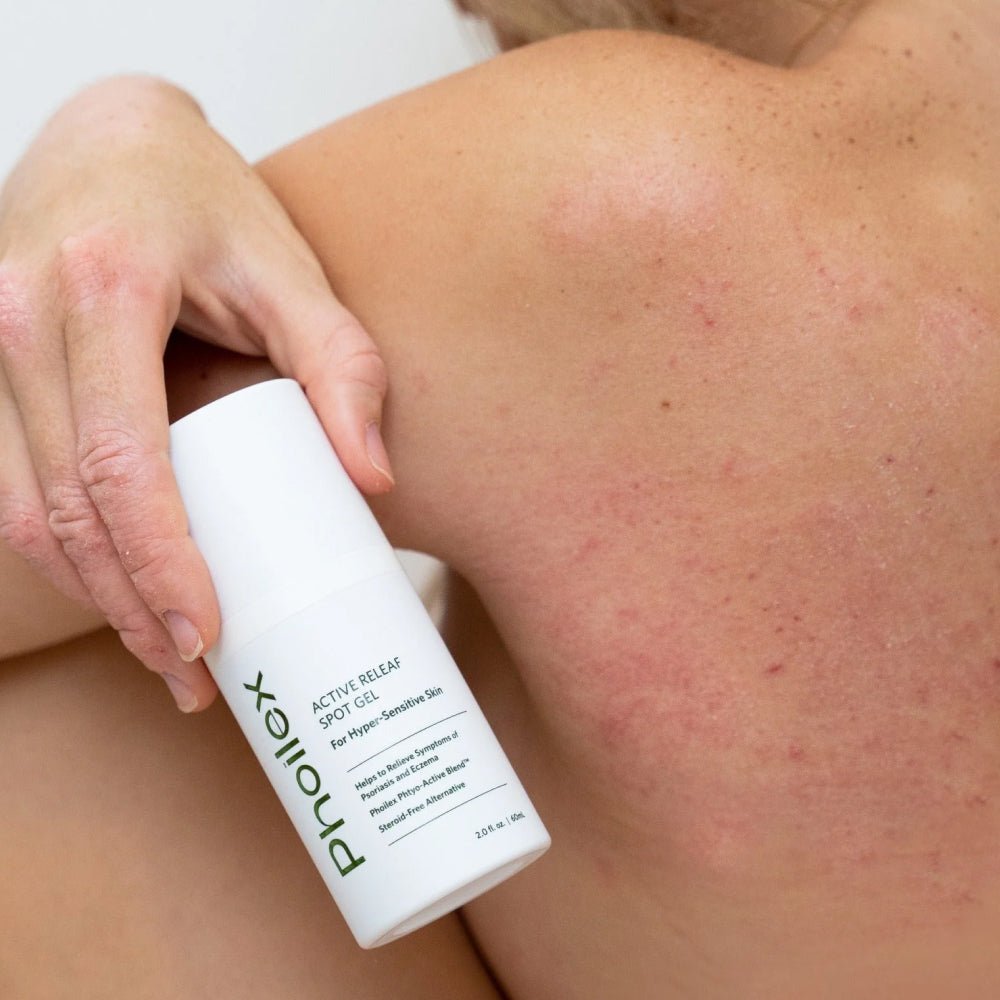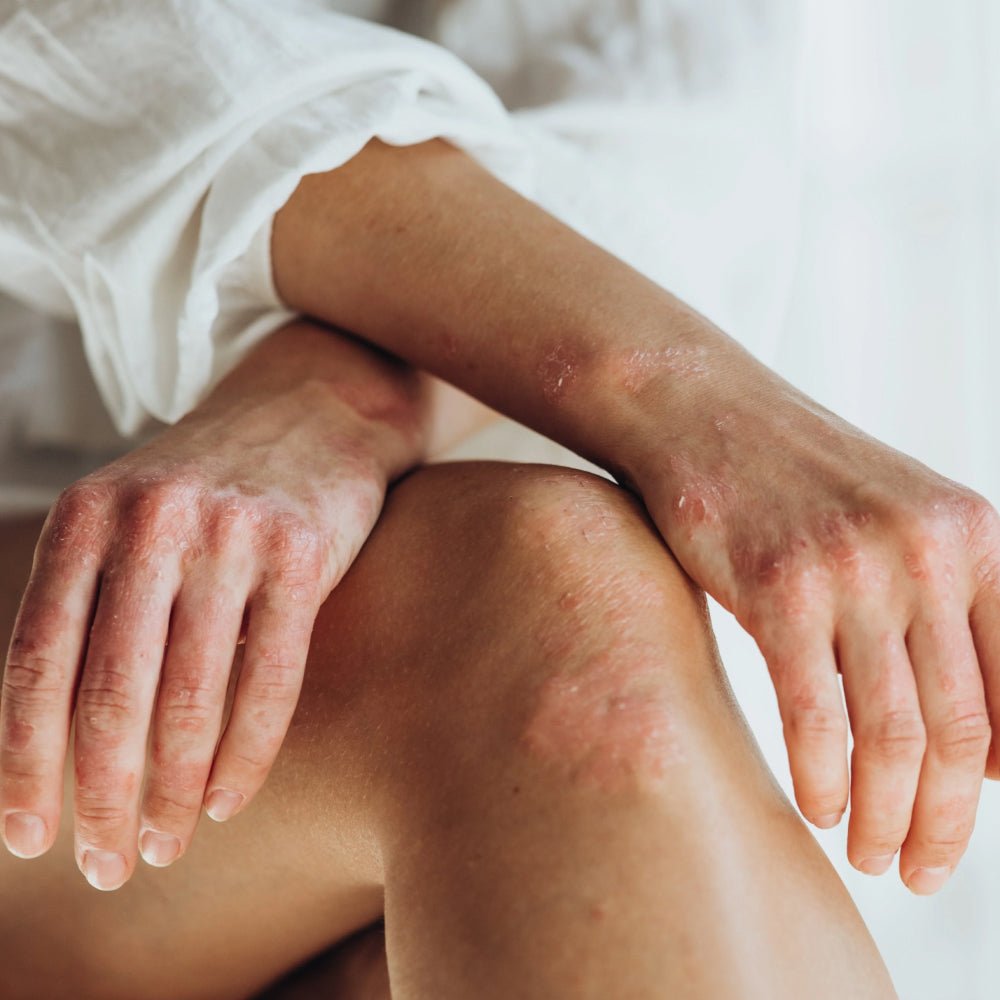Despite being two different skin conditions, psoriasis and eczema can sometimes be confused since they have overlapping symptoms like itching and redness. This raises an essential question: Are psoriasis and eczema treated the same way?
Effective therapy requires an understanding of the distinctions between these conditions. Psoriasis is an autoimmune condition characterized by a high rate of skin cell turnover; on the other hand, eczema, particularly atopic dermatitis, is often caused by surrounding allergens and irritants that cause an immune system overreaction (WebMD, 2024, How can I tell if it’s psoriasis or eczema?; National Eczema Association, 2022, Is it eczema or psoriasis?). These differences have a substantial impact on each condition's symptoms as well as the approaches taken to therapy.
Are Eczema and Psoriasis Treated the Same Way?
While psoriasis and eczema may have some overlapping treatments, their management differs based on severity and underlying causes (Medical News Today, 2023, Psoriasis vs. eczema: Differences in symptoms and treatment).
Eczema treatment focuses on hydrating the skin and avoiding irritants, whereas psoriasis often requires systemic medications, light therapy, or emollients for symptom relief, especially in severe cases (Penn Medicine, 2022, Eczema vs. psoriasis: Similarities, contrasts and treatment).
Understanding these differences is key to developing the most effective treatment plans for each condition. The next sections display key similarities and separated characteristics between eczema and psoriasis.
Similarities of Eczema and Psoriasis
Psoriasis and eczema share some symptoms, which can lead to confusion. While psoriasis is an autoimmune condition, eczema involves an overactive immune response but is not strictly autoimmune. These similar medical conditions display common signs such as skin redness, inflammation, and itchiness (WebMD, 2024, How can I tell if it’s psoriasis or eczema?; Penn Medicine, 2022, Eczema vs. psoriasis: Similarities, contrasts and treatment).
Furthermore, environmental factors, skin injuries, and stress can all cause either disease. There may also be a hereditary tendency if certain disorders run in the family (Medical News Today, 2023, Psoriasis vs. eczema: Differences in symptoms and treatment).
Both illnesses may need comparable treatment strategies to reduce symptoms and control flare-ups, according to WebMD (2024) and Penn Medicine (2022).
5 Differences Between Eczema and Psoriasis
Eczema and psoriasis feature these 5 distinct differences that are crucial for diagnosis and treatment.
Causes
Eczema is often linked to genetic variations that affect the structure of the skin barrier, making it more susceptible to irritants and allergens. In contrast, The main cause of psoriasis stems from an overactive immune system which accelerates skin cell production causing thick and scaly patch buildups (Penn Medicine, 2022, Eczema vs. psoriasis: Similarities, contrasts and treatment).
Symptoms
Eczema symptoms include severe itching and oozing lesions that may form crusts. Psoriasis may cause burning or stinging sensations, but it is not always itchy or significantly uncomfortable (WebMD, 2024, How can I tell if it’s psoriasis or eczema?).
Appearance
The National Eczema Association (2022) highlights that eczema typically appears as red dry areas with poorly defined edges whereas psoriasis produces well-defined plaques that are thickened with silvery or white scales. However, how these conditions appear can vary based on skin tone. For example, in individuals with lighter skin, psoriasis may appear red or pink, whereas in darker skin tones, it often looks violet. Eczema, on the other hand, may appear as a raised, rough patch that is red on lighter skin and violet on darker skin.
On light skin, psoriasis typically appears red or pink (left), while on dark skin, it often presents as violet (right). (Image source: https://www.aad.org/)
Eczema appears as raised, rough patches, red on lighter skin (left) and violet on darker skin (right). (Image source: https://www.aad.org/)
Age
Both eczema and psoriasis can affect individuals of all ages. However Medical News Today (2023) reports that eczema often develops in children and tends to improve with time, whereas psoriasis is a chronic condition that typically appears between ages 15 and 35.
Location
Eczema commonly affects flexural areas, such as the inner elbows and the backs of the knees. In contrast, psoriasis typically appears on the elbows, knees, scalp, and lower back. (Penn Medicine, 2022, Eczema vs. psoriasis: Similarities, contrasts and treatment; WebMD, 2024, How can I tell if it’s psoriasis or eczema?).
Treatment of Eczema and Psoriasis
Both conditions require a tailored approach that takes individual triggers and skin types into account. Here are treatments for managing eczema and psoriasis symptoms and preventing flare-ups.
Treatment for Psoriasis
According to Medical News Today (2023) and WebMD (2024), changes in lifestyle can help manage psoriasis.
-
Manage stress by practicing mediation
-
Follow a consistent, proper skincare routine, including showering with warm water and applying moisturizer daily.
-
Get enough sleep for healthy skin
-
Engage in some exercise like yoga. Combine this with Liverty Dynamic Drops to promote your liver and liver function, reducing the psoriasis symptoms.
They also show that, when attempting to prevent flare-ups, patients should stay away from triggers, including smoking, excessive alcohol consumption, and harsh weather.
Controlled UV light therapy can effectively reduce inflammation and promote skin healing.
Treatment for Eczema
You can prevent eczema from flaring up by these simple yet effective approaches (Penn Medicine, 2022, Eczema vs. psoriasis: Similarities, contrasts and treatment; National Eczema Association, 2022, Is it eczema or psoriasis?).
-
Maintaining a strong skin barrier requires regular moisturization to prevent dryness.
-
Avoid exposure to items that trigger flaring including particular wool or synthetic fabrics, harsh soaps, fragrances in cosmetics, and contact allergies.
-
Stress management with mindfulness along with relaxation exercises is essential.
Phoilex offers a botanically derived, steroid-free solution for eczema and psoriasis, providing gentle yet effective relief.
-
Active ReLeaf Spot Gel provides instant relief with our Phyto-Active Blend™, soothing itchy skin, reducing redness, and supporting the structure and integrity of the skin barrier. Each natural ingredient in this blend plays a deliberate role in promoting skin health and vitality; effectively addressing wounds and redness.
-
Liverty Dynamic Drops target internal inflammation; a major trigger for psoriasis and eczema, supporting healthier skin from within. This formulation protects against oxidative damage, promoting optimal liver function.
-
Dynamic ReLeaf Duo combines Active ReLeaf Spot Gel and Liverty Dynamic Drops to soothe itching, redness, and inflammation in eczema and psoriasis, providing relief for up to 12 hours.
Soothe and Protect Your Skin with Phoilex Today
Is eczema and psoriasis treated the same? Eczema and psoriasis are distinct conditions requiring targeted treatment approaches. While both can result in red and itchy skin, they differ in their underlying causes, symptoms, and management strategies. Phoilex offers effective, non-steroidal products designed for these skin issues, especially eczema and psoriasis. Find out how Phoilex products can quickly provide effective skin calming now.
Q: What are the main differences between eczema and psoriasis treatments?
A: While both conditions may require topical treatments, eczema typically focuses on moisturizing and avoiding triggers, while psoriasis often needs more intensive therapies. Psoriasis treatment frequently involves systemic medications and light therapy, whereas eczema management emphasizes barrier repair and anti-inflammatory treatments.
Q: Can someone have both eczema and psoriasis at the same time?
A: Yes, it is possible to have both conditions simultaneously, though this is relatively uncommon. The conditions can appear in different areas of the body and may require separate treatment approaches to manage each effectively.
Q: How can I tell if my skin condition is eczema or psoriasis?
A: Eczema typically appears as red, inflamed patches that are intensely itchy and may weep or crust, while psoriasis presents as thick, silvery-scaled patches with well-defined borders. Eczema commonly occurs in body folds and is triggered by environmental factors, whereas psoriasis often appears on elbows, knees, and scalp due to autoimmune responses.
Q: Do environmental triggers affect eczema and psoriasis differently?
A: Environmental triggers tend to have a more immediate and direct impact on eczema, causing flare-ups from allergens, irritants, and weather changes. Psoriasis, being an autoimmune condition, is less directly affected by environmental factors but can be triggered by stress, injuries to the skin, and certain medications.
Q: Are the moisturizing needs different for eczema versus psoriasis?
A: Yes, while both conditions benefit from moisturizing, eczema typically requires more frequent application of emollients to maintain skin barrier function. Psoriasis often needs thicker, medicated moisturizers that can help remove scales and reduce inflammation, along with other therapeutic ingredients.
Q: How do stress levels impact these two skin conditions?
A: Both conditions can worsen with stress, but they respond differently. Psoriasis flares are more commonly triggered by psychological stress due to its autoimmune nature, while eczema may be aggravated by both physical and emotional stress through complex immune system responses.
References:
-
Ballard, A. (2022, September 3). Is it eczema or psoriasis? National Eczema Association. https://nationaleczema.org/blog/eczema-or-psoriasis/
-
Nall, R. (2023, April 28). Psoriasis vs. eczema: Differences in symptoms and treatment. Medical News Today. https://www.medicalnewstoday.com/articles/315749
-
Penn Medicine. (2022, March 24). Eczema vs. psoriasis: Similarities, contrasts and treatment. Penn Medicine. https://www.pennmedicine.org/updates/blogs/health-and-wellness/2022/march/psoriasis
-
Robinson, K. M., & Altomara, D. (2024, December 9). How can I tell if it’s psoriasis or eczema? WebMD. https://www.webmd.com/skin-problems-and-treatments/psoriasis/psoriasis-or-eczema
Read more

One of the biggest things our skin will do is tell us what’s going on inside. If you have eczema, and going through topical steroid withdrawal, your body is probably letting you know there is a war...

We are thrilled to announce that Phoilex Active ReLeaf Spot Gel has officially been recognized by Shape Magazine as one of the Best Products for Flare Ups in the 2025 Shape Skin Awards! This honor ...
